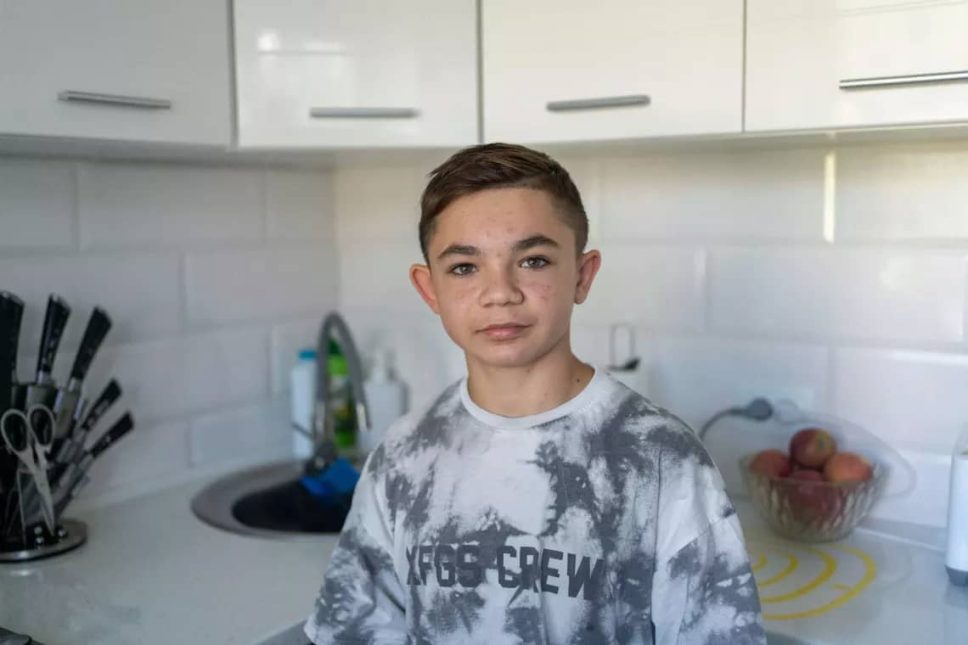
UNICEF and partners restore safe water supply in Sloviansk
24/09/2024
Last summer, scores of families in Sloviansk, Ukraine faced daily struggles to access safe water. Shelling had destroyed the city’s infrastructure, leaving it without water for over three months. Residents were forced to buy water, collect it from wells and store it at home, turning a basic necessity into a constant challenge.
Now, thanks to support from the United Nations Children’s Fund (UNICEF) and its donors, the reconstruction of Sloviansk’s main water and sanitation networks is nearing completion.
With a stable water supply restored to the town and two nearby settlements, families no longer have to make difficult choices between cooking, washing or bathing their children.
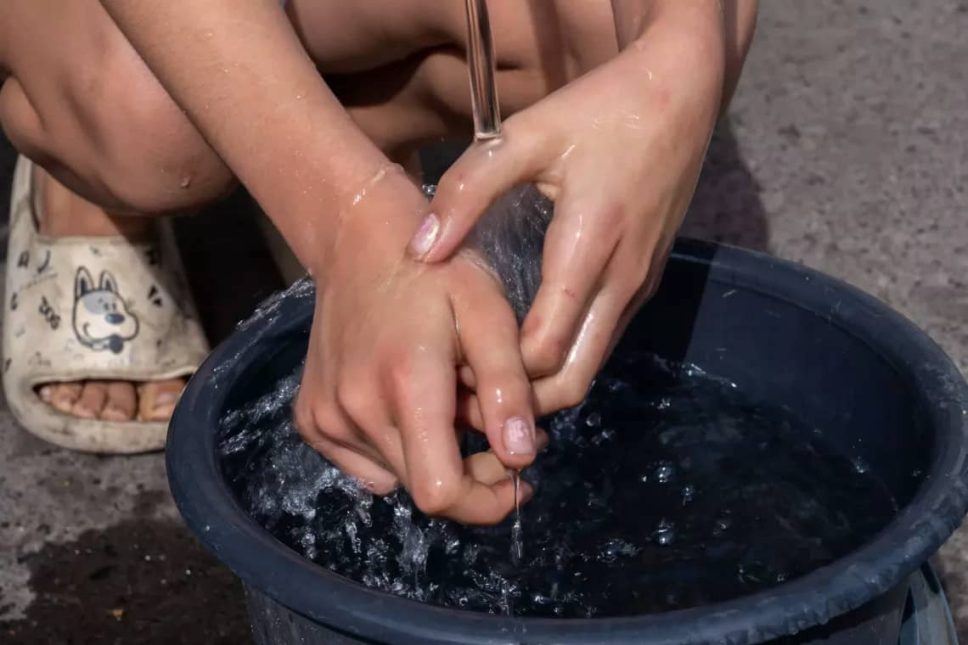
“It’s amazing to have water right at home”
For 13-year-old Bohdan, dancing is more than just a hobby – it is a way of life. This eighth-grader from Sloviansk has earned dozens of medals for his modern dance performances and, with a competition taking place in the capital next month, his daily training routine is in full swing.
After finishing his online school lessons, Bohdan quickly eats lunch, and rushes to pack his gym bag. “Don’t forget the water,” his mother Olena reminds him.
“It’s amazing to have water right at home,” says the young boy, as he fills his water bottle. “I can just turn on the tap. After practice, I can shower immediately. Moreover, the water is clean now.”
Sloviansk is located 30 kilometres from the frontline. In the first year of the full-scale war, the area endured relentless shelling, which took lives, destroyed homes and disrupted essential services.
“A house next to ours was destroyed and a child was killed there,” recalls Bohdan. “When the shelling was really bad, we had to leave the town. Now, it’s quieter, but sometimes I still hear it while I’m sleeping. When the shelling starts, my parents and I immediately go into the corridor with the cat.”
Bohdan, 13
Last summer, Bohdan and his parents faced the daily challenge of collecting water from a well in a neighbouring area. It was a long, exhausting walk – over an hour there and back. Bohdan had his own five-litre plastic bottle that he would carry home, full of water.
“We had no water for three and a half months because of the shelling,” he says. “I helped my mom, grandma and grandpa. We’d carry five bottles at a time.”
When the water supply was restored to Sloviansk, Bohdan and his family were very relieved. Now, he dreams not only of peace, but also of a happier future.
“I really want to go back to school,” he says. “I want the shelling to stop, for the houses to be repaired and for water to always be available. I also wish my friends, who had to leave because of the war, could come back to Sloviansk.”

“This will benefit both adults and children”
Meanwhile, major repairs are still underway on the outskirts of Sloviansk. In the midst of a sunflower field, workers from the local water company are installing a new pipeline that will boost the city’s water supply capacity by 30 per cent and supply water to an additional 30,000 people.
“The repaired line will allow us to increase the volume of water delivered to residents,” explains Oleksandr Pohribnyi, chief engineer at the water company. “It will also reduce costs, as the old line hadn’t been repaired in 20 to 30 years and broke down every two or three weeks. Now we’ll be able to provide clean water without frequent repairs or delays.”
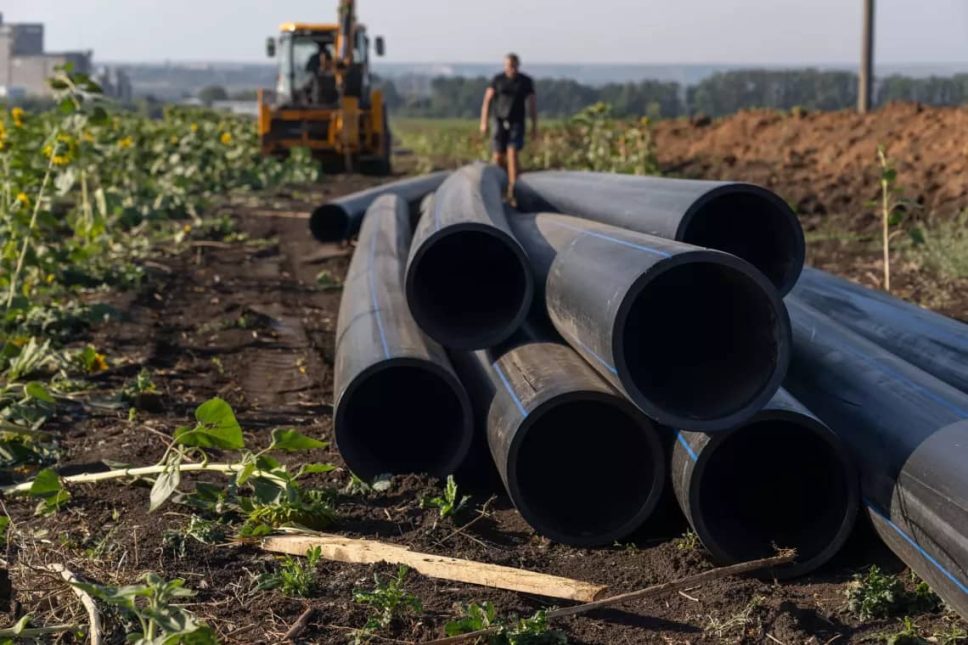
Last year, nearly half of the city’s water equipment was in desperate need of replacement. Today, thanks to UNICEF and donors, the local water company has received the funds they needed to repair and upgrade it.
“We’ve been working here for about two weeks, installing two and a half kilometres of new pipes,” says Oleksandr. “This will definitely increase the number of households receiving reliable, clean water, benefiting both adults and children.”
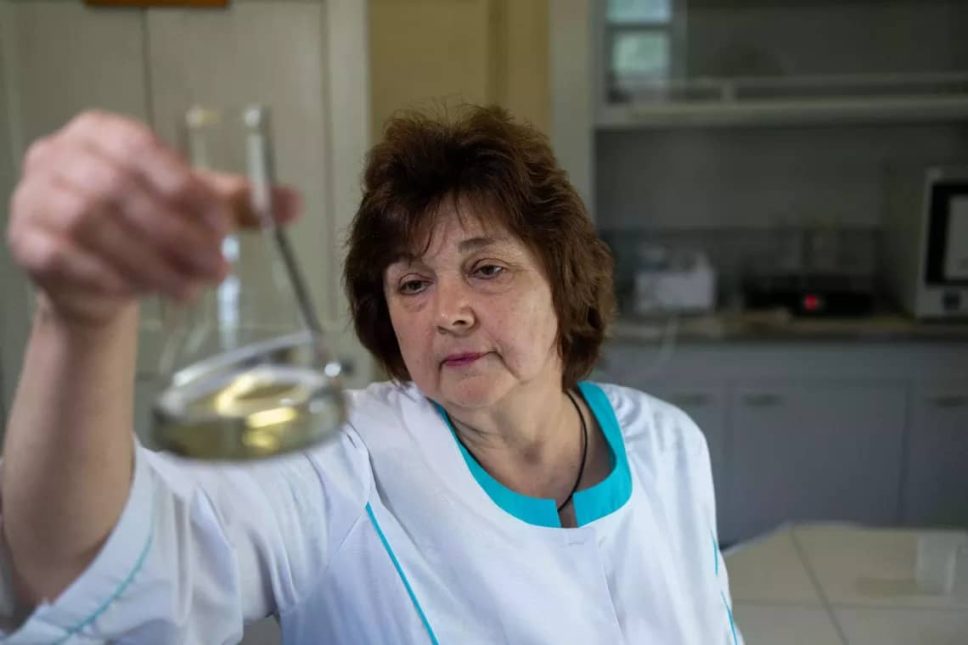
A path of water
In Sloviansk, the journey of water does not end after it is used – it flows into the sewer system. For Svitlana Bilous, who works at a local chemical and bacteriological laboratory, it is a continuous cycle.
“Our treatment plants receive water from all the sewage pumping stations across Sloviansk – water from homes, cafés, and businesses,” she says. “These pumping stations transfer the wastewater to the treatment plant, where it undergoes multiple stages of purification. Once treated, the water is released into special ponds and eventually flows into the Sukhyi Torets River, a tributary of the Siverskyi Donets River, which is our main water source.”
Svitlana’s team plays a crucial role in monitoring the quality of this treated water, ensuring that it meets safety standards before re-entering the natural ecosystem. This meticulous process requires advanced equipment, chemical reagents and continuous funding.
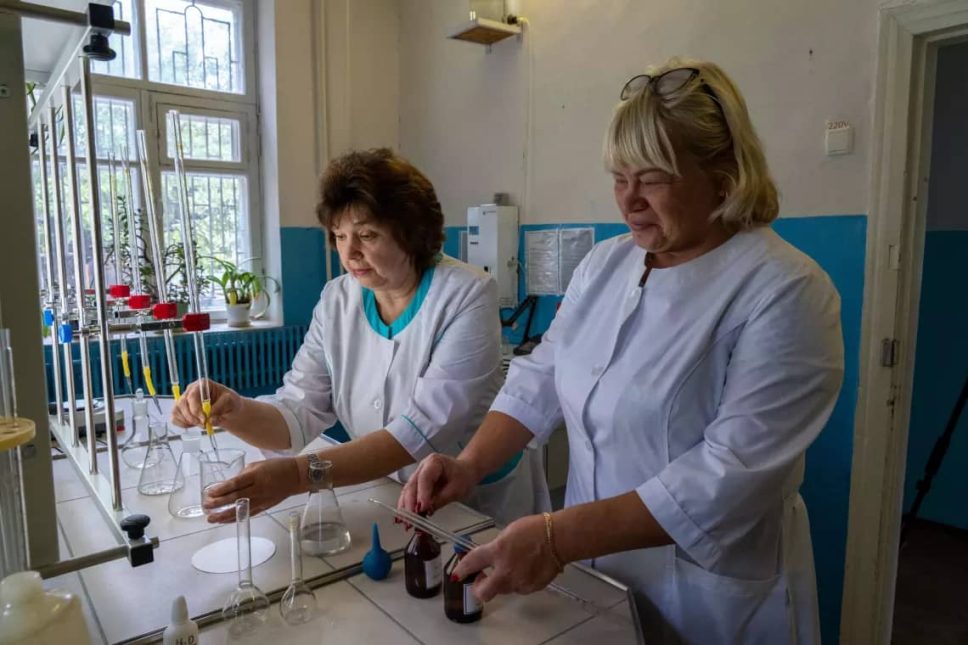
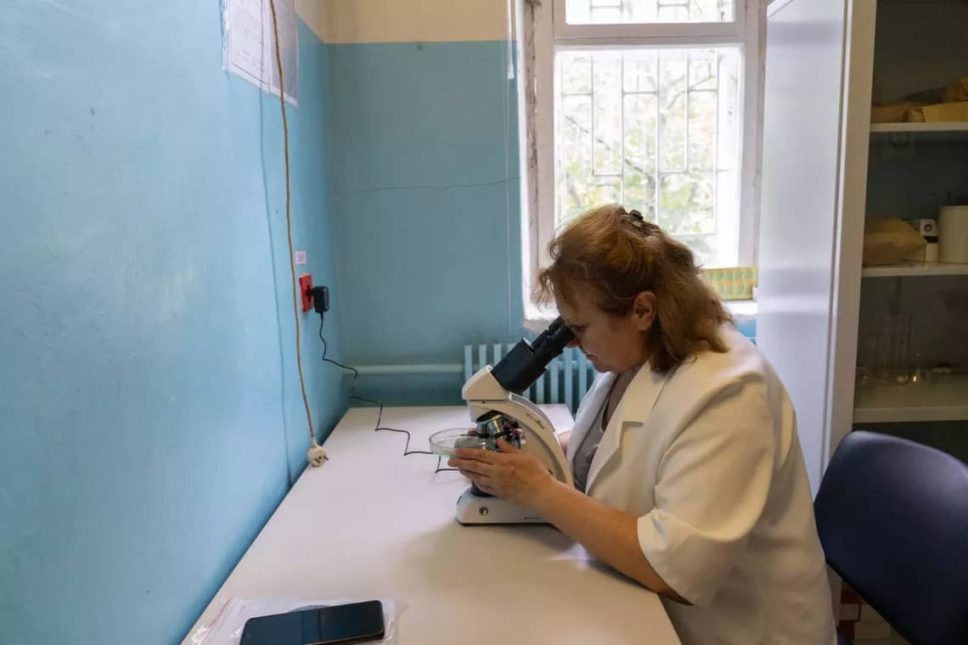
Recognizing the importance of this work, UNICEF recently stepped in to help equip three laboratories in Sloviansk, providing the necessary tools and reagents for effective water treatment and testing.
“Recently, we’ve seen significant improvements in our laboratory,” says Svitlana. “UNICEF provided us with state-of-the-art equipment, precise analytical balances and modern instruments that enable us to conduct more accurate tests and ensure better water quality.”
“Our work is incredibly important,” she adds. “Both adults and children rely on this water. It’s vital that our children, the next generation, have access to clean water for their health and well-being.”
Thanks to partnerships with the European Union and the governments of Denmark, Croatia, South Korea, Norway and the United States, UNICEF Ukraine is delivering comprehensive winter support to children and families across the country. This includes strengthening district heating systems, supplying essential materials for water and sanitation services, and offering financial aid to vulnerable families. These winterisation efforts are expected to impact nearly 1.4 million people, including 240,000 children.
UNICEF’s work in Sloviansk continues, with plans to assist the local water supply company in the next phase of their work to repair 31 manholes across the town’s water and sewerage network.» у проведенні робіт з відновлення 31 люка водопровідних та каналізаційних мереж.
Stories
-
Katarina Mathernova: If Ukraine had a human face and a human spirit, it would be 10-year-old Roman Oleksiv
-
A regional mission to drive social entrepreneurship: the story of Ksenia Kosukha
-
EU restores safe water supply for 100,000 Ukrainians affected by war
-
Promoting IT during the war: Lviv IT cluster and how EU4Digital helps
-
Frontline digitalisation: Kharkiv IT Cluster collaborations
-
How EU4Youth is driving opportunity and success among young Ukrainians
